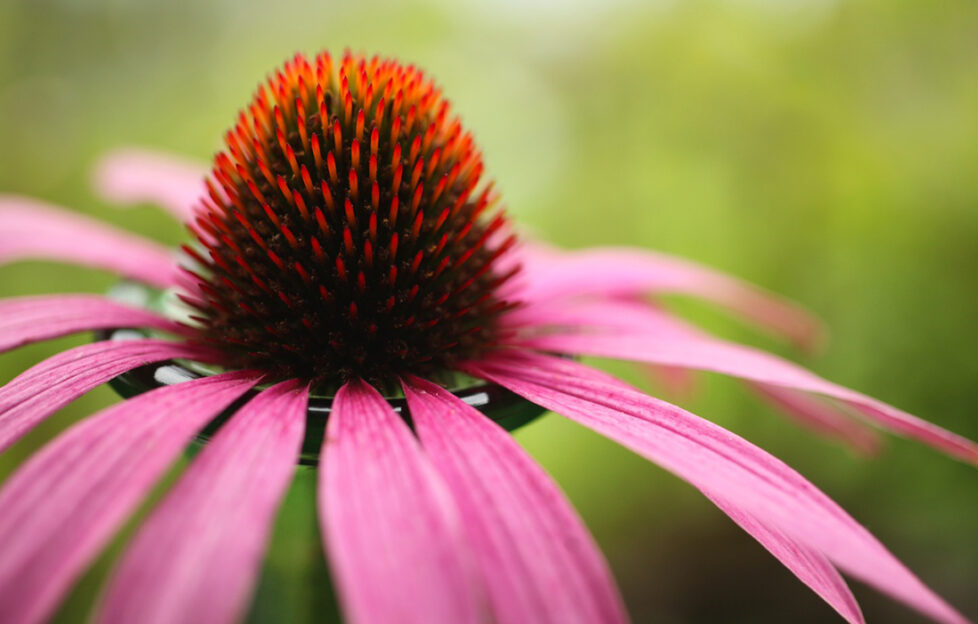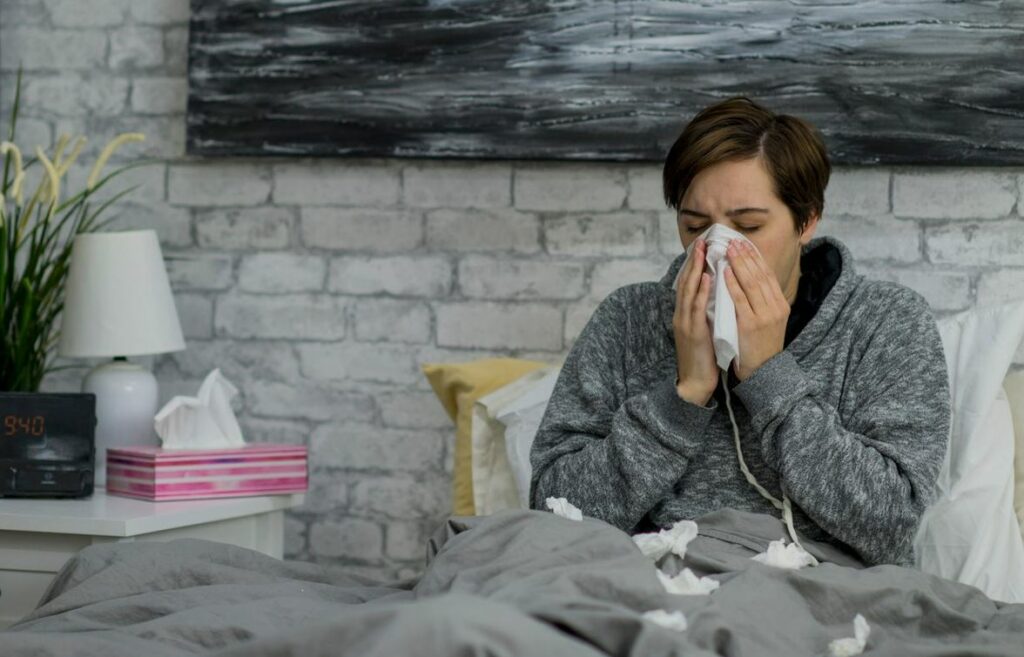Boost your Winter Immunity with Echinacea

We’ve all heard of Echinacea – but what exactly is it? And more importantly, how does it work?
Read on for all you need to know about the all-important herb that will keep colds and flu at bay this winter!
A traditional medicine
Echinacea became a favourite among European pioneers in America and their doctors for treating a range of infections. It fell out of favour with the advent of modern antibiotics, but you’ll still find the herb plays an important role in all modern herbal dispensaries.
What really is echinacea?
Known as the purple coneflower, echinacea derives from the Greek echinos (hedgehog) and refers to the thorny base of the flower head. Purpurea is Latin for ‘purple-red’. The purple coneflower is a perennial plant and there are different types of echinacea but in terms of herbal remedies and preparations echinacea purpurea is most favoured. In the first year, the purple coneflower blooms in September; in the following years, in July.
How does it work?
Dr Ross Walton a leading Immunologist says, “A growing body of research shows that the herb Echinacea (Echinacea purpurea) helps:
- Reduce the risk of catching a Respiratory Tract Infection
- It also reduces the viral load of a cold and flu as well as the severity and duration of the symptoms
- It can also significantly lower the incidence of complications of RTIs (Respiratory Tract Infections) such as sinusitis, bronchitis and pneumonia, making it an ever more useful over-the-counter treatment choice,” Dr Walton explains.
Already licensed in the UK to relieve symptoms of the common cold and influenza, Dr Walton expands, “Echinacea has not only been shown to prevent the symptoms of a common cold erupting but more recently, a new study shows that Echinacea purpurea is effective against COVID-19 by reducing the risk of infection by 63%, reducing viral load from infection, and viral clearance from infection was significantly reduced by 4.8 days. This may prove effective in lessening the severity of respiratory symptoms experienced and aid recovery.”
Winter sore throats – can echinacea help?
Viral infections are the most common cause of a sore throat and antibiotics are not an option in this instance as this medication is only effective against bacteria. Sage has traditionally been used to treat a sore throat as it has astringent, antiseptic and antibacterial qualities.
This can be combined with Echinacea which has antiviral actions. Echinaforce Sore Throat Spray (30ml, £11.35) is a THR licensed herbal medicine that contains fresh extracts of both these herbs to help relieve a sore throat plus it’s also really easy to use with special nozzle and spray pump, designed to deliver echinacea and sage extracts to soothe the painful and irritated parts at the back of the throat.
When should you take echinacea and for how long?
It is a good idea to take echinacea during periods when you are more prone to infection, such as in the winter months. It is also worth taking it if you have come into contact with someone suffering from viral symptoms or a cold/sore throat. Some research has indicated that echinacea can be used long-term all year round, however, if you are struggling with recurrent illness, it is important to be checked out by your GP or a medical professional.
Is echinacea used in topical treatments?
As well as its use in traditional medicine, the herb is also used in topical products such as moisturisers and it is also used in toothpastes.
If I am on any other medicines, what do I need to know?
Like all conventional medicines, herbal medicines can interact with other medications, so it is always important to read the Patient Information Leaflet that is inside all licensed herbal medicine packs and if in doubt, consult your GP or qualified medical herbalist for advice. A good website for reference also to check any interactions is www.drugs.com.
What sort of echinacea should I be buying?
As quality of herbal medicine products can vary, ask the pharmacist for a licensed echinacea products that display a PL number or THR logo on pack such as A. Vogel’s Echinaforce range.
Try PL licensed herbal medicine, Echinaforce Drops, £10.85 (50ml) from www.avogel.co.uk, Boots or Holland & Barrett.
It is always advised to read the leaflet before starting any product.






